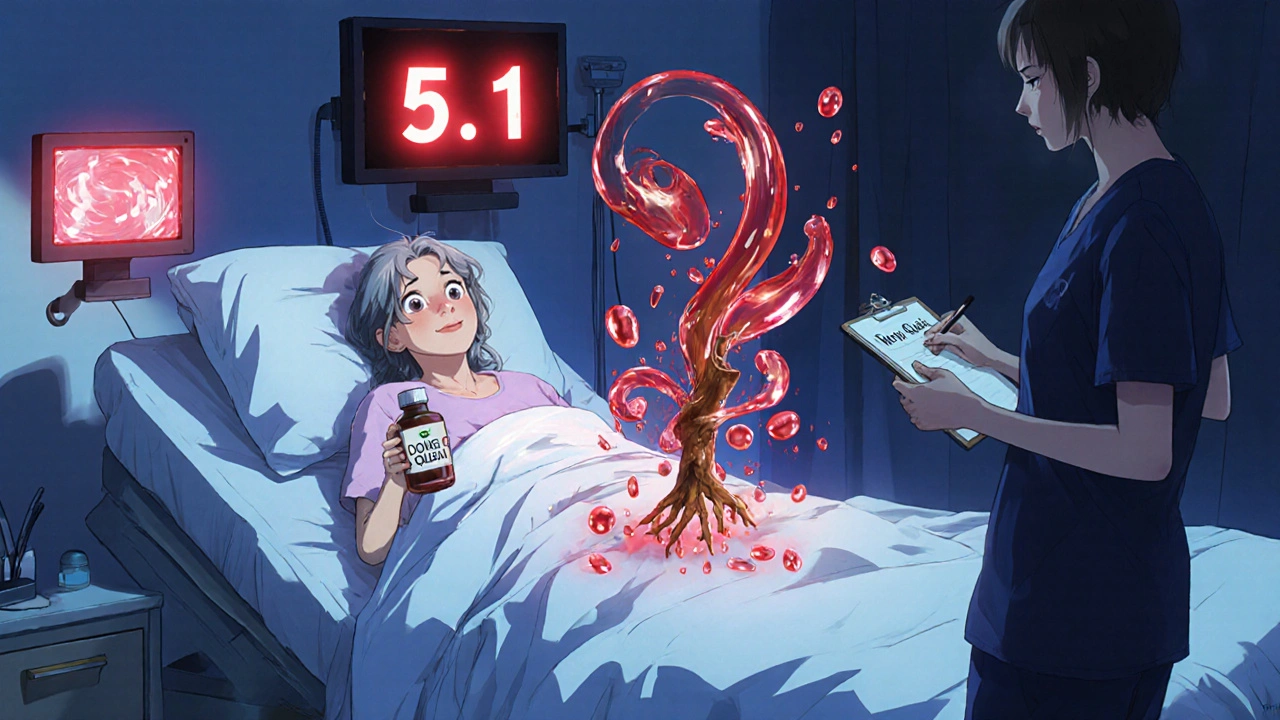
Dong Quai can dangerously increase the blood-thinning effect of warfarin, raising the risk of serious bleeding. Learn why this herbal supplement is not safe to use with anticoagulants and what to do instead.
When you hear Dong Quai, a traditional Chinese herb often used for menstrual and menopausal symptoms. Also known as Angelica sinensis, it's been used for centuries to support women’s hormonal balance. But here’s the catch: Dong Quai can act like a mild blood thinner, and that’s not something to take lightly if you’re already on medication.
It doesn’t take much to run into trouble. If you’re taking warfarin, aspirin, clopidogrel, or even common NSAIDs like ibuprofen, Dong Quai can push your blood’s ability to clot too far in one direction. Studies have shown that people using Dong Quai alongside blood thinners had higher INR levels — meaning their blood took longer to clot. That’s not just a lab number; it’s a real risk for unexplained bruising, nosebleeds, or worse. And it’s not just prescription drugs. If you’re using other herbal supplements like ginkgo, garlic, or ginger, you’re stacking the deck. The combination doesn’t always show up in a quick checkup — but it can show up in an ER.
Women often turn to Dong Quai because they want a natural alternative to hormone therapy. But "natural" doesn’t mean safe in every context. This herb doesn’t just affect hormones — it affects your blood. If you’ve had surgery recently, are pregnant, or have a history of heavy periods, endometriosis, or uterine fibroids, Dong Quai might make things worse. And if you’re scheduled for any procedure, even a dental extraction, you need to stop it at least two weeks before. No one tells you that on the bottle.
There’s no official safe dose for Dong Quai when it comes to bleeding risk. The amount in a capsule can vary wildly between brands. And because it’s sold as a supplement, it’s not held to the same standards as drugs. That means you’re trusting a label that doesn’t have to prove what’s inside. The FDA doesn’t approve herbal supplements for safety or effectiveness — they only step in after something goes wrong.
So what’s the real takeaway? If you’re thinking about Dong Quai, talk to your doctor first — especially if you’re on any medication or have a health condition that affects your blood. Don’t assume it’s harmless just because it’s plant-based. The same goes for any herbal remedy you’re considering. Your body doesn’t care if it’s from a lab or a forest — it reacts to what’s in it.
Below, you’ll find real patient stories, medical insights, and clear comparisons about how herbal supplements like Dong Quai interact with prescription drugs. You’ll see what actually happens when people mix them, what symptoms to watch for, and how to make smarter choices without guessing.

Dong Quai can dangerously increase the blood-thinning effect of warfarin, raising the risk of serious bleeding. Learn why this herbal supplement is not safe to use with anticoagulants and what to do instead.